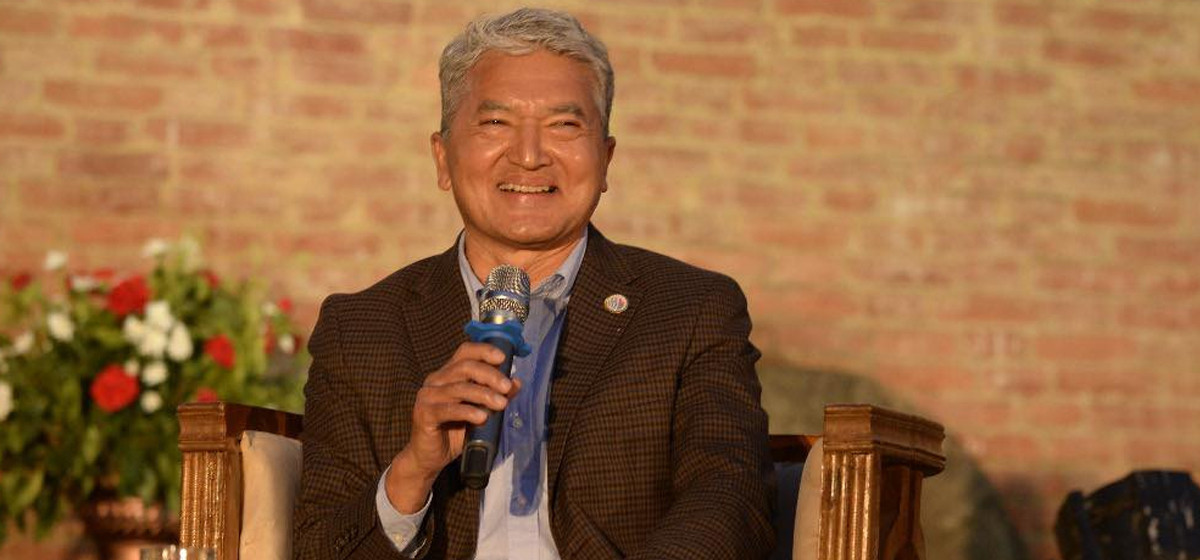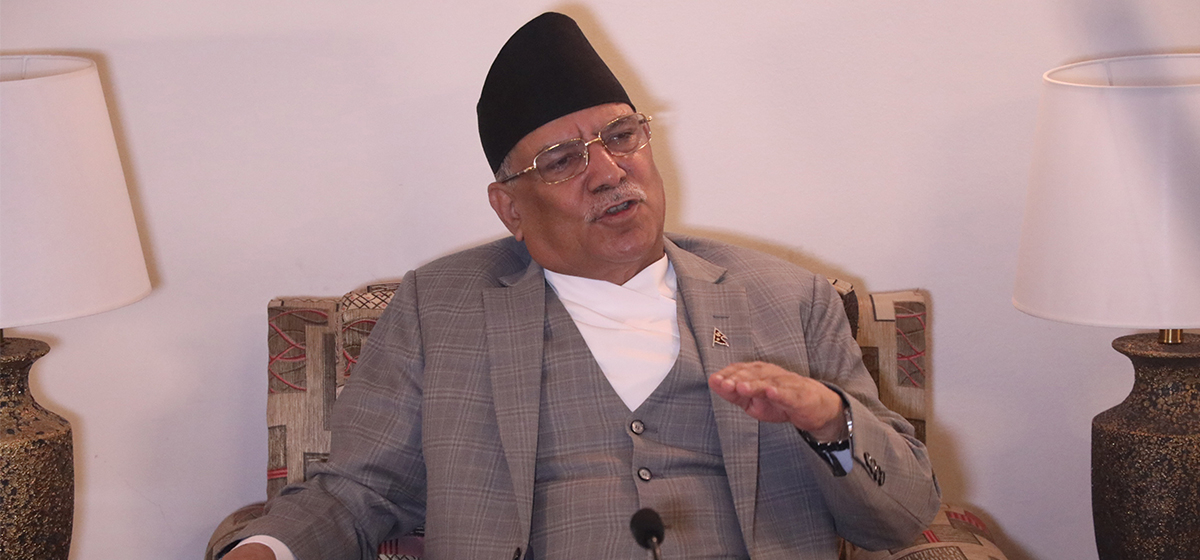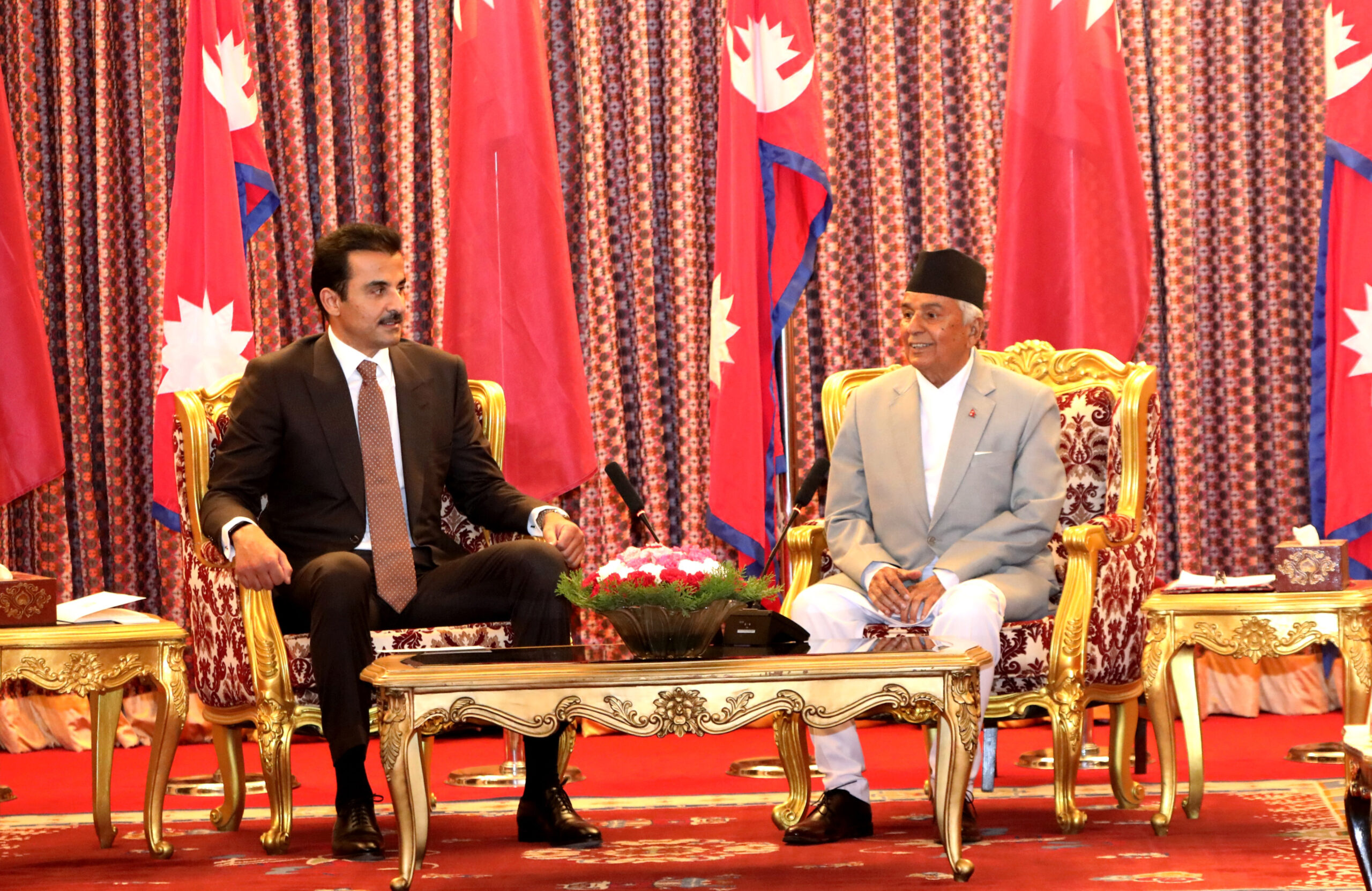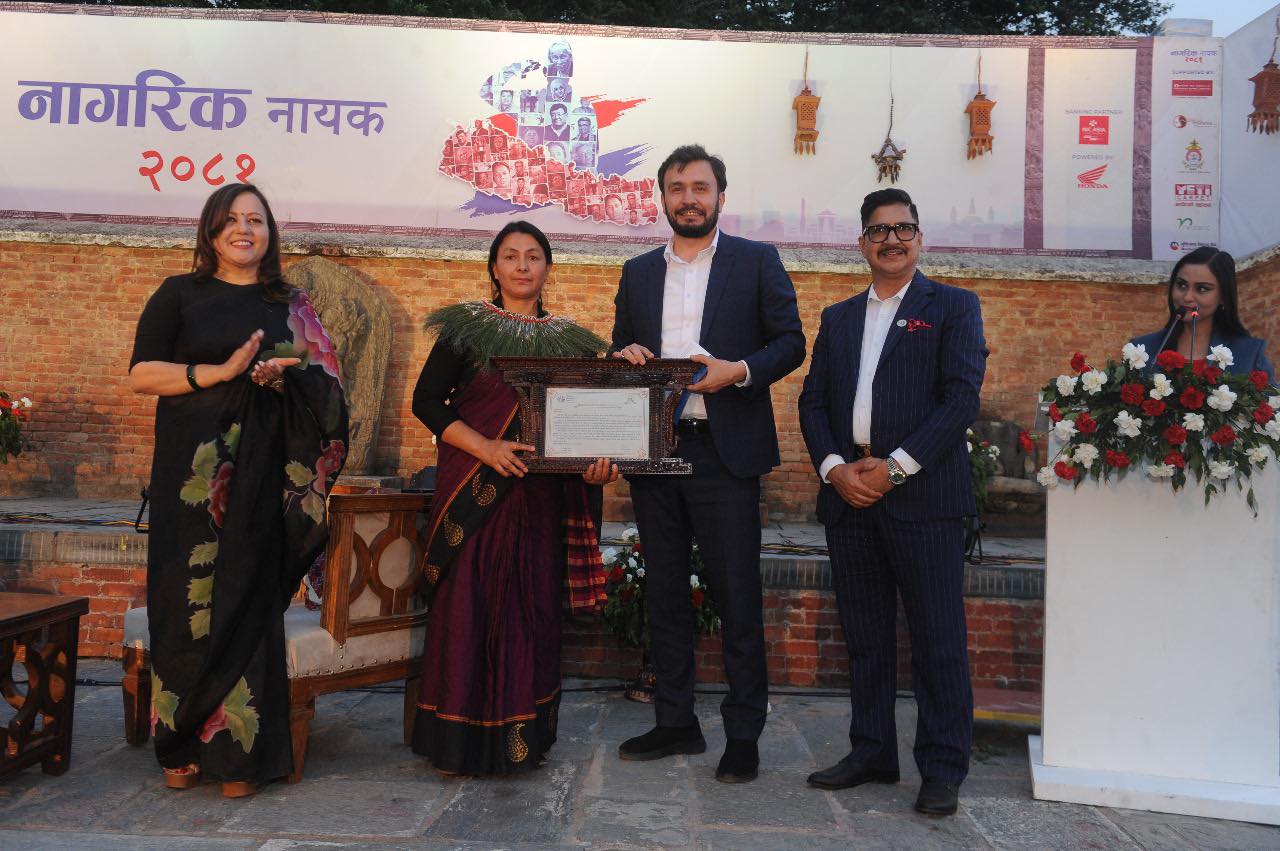
OR
Awarding state honors
To mark the ninth Republic Day, President Bidya Devi Bhandari on May 26 conferred state honors on 258 different personalities, supposedly for their contribution to the society. There must be no doubt some among the 258 deserve to be recognized as such.
For instance among the more deserving are the current chief of Nepal Electricity Authority Kulman Ghising (who has been instrumental in cutting load-shedding hours) and former governor of Nepal Rastra Bank Yubaraj Khatiwada (who was able to impose much-needed discipline on our reckless banks and financial institutions). But there is no rhyme or reason to most nominations for these state honors. For instance, Madan Bhandari, the late general secretary of CPN-UML, has been given Nepal Ratna Man Padavi, the highest civilian award. Likewise, Sushil Koirala, the late prime minister and Nepali Congress leader, has been given Gauravshali Man Padavi, the second-highest honor; senior UML leader and former Speaker Subhas Nembang has also gotten the same medal. Whether or not these personalities deserve these honors, the government has not felt the need to give any justification for why it picked them. In fact, few know why.
Going down the list of the award-recipients, one cannot help but feel that the ruling parties have decided to bestow state honors on those close to them, irrespective of their contribution to the society. This new manifestation of patronage politics is reminiscent of the days when the monarch used to confer similar awards on those who endlessly glorified the Shah monarchy. This defeats the whole purpose of giving such awards in republican Nepal. With every other politician and bureaucrat being decorated alongside, how will those who have in fact made meaningful contribution to the society and are being awarded feel? Chances are that they will feel belittled more than they feel honored. The message the government and the President’s Office is trying to give is that if you want to be recognized in Nepal, you need to do nothing more than be a loyal follower of this or that political party. This is, however, not to suggest that all politicians are crooks and no politician is deserving. Far from it. In fact, in a country where the politicians are mostly seen as self-serving and corrupt, it is important to recognize those who have selflessly served the public, or those who have taken great political risk to push vital democratic reforms.
But, first, we need clear criteria for who is eligible for these awards. Then, in order to ensure that the awards are not tainted by political bias, there could be an independent awards committee comprised of eminent persons of the society who are known for their moral uprightness. This committee will then decide, on the basis of set criteria, who is eligible. For instance, if awards can be awarded posthumously, how far back in our history can we go? And how relevant will those posthumous awards be? Can the relatives of those holding high public office qualify? And since there are many awards, who is eligible for which awards? Without clarity on these issues such awards and decorations will have little or no meaning. In fact, if they end up promoting nepotism and favoritism, these awards will end up setting a dangerous legacy.
You May Like This

Big parties drop ilaka as basis for local units
KATHMANDU, Oct 4: Major political parties have backed away from their previous decision to take the existing ilaka as the main... Read More...

Work on basis of justice and facts: IGP Aryal
BHIMDUTTANAGAR, Sept 30: Inspector General of Police (IGP) Upendra Kant Aryal today said the police should not work under political... Read More...

Panel says no legal basis for China's South China Sea claims
THE HAGUE, Netherlands, July 12: An international tribunal ruled unanimously Tuesday that there is no legal basis for China's "nine-dash... Read More...





Just In
- Nepalgunj ICP handed over to Nepal, to come into operation from May 8
- Nepal to gift two elephants to Qatar during Emir's state visit
- NUP Chair Shrestha: Resham Chaudhary, convicted in Tikapur murder case, ineligible for party membership
- Dr Ram Kantha Makaju Shrestha: A visionary leader transforming healthcare in Nepal
- Let us present practical projects, not 'wish list': PM Dahal
- President Paudel requests Emir of Qatar to initiate release of Bipin Joshi
- Emir of Qatar and President Paudel hold discussions at Sheetal Niwas
- Devi Khadka: The champion of sexual violence victims



_20240423174443.jpg)










Leave A Comment